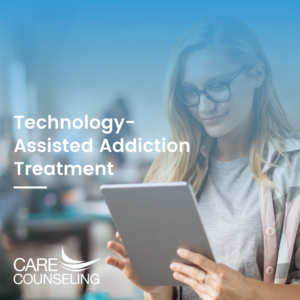Technology-Assisted Addiction Treatment
 As the landscape of addiction treatment evolves, technology-assisted tools such as smartphone apps and wearables are becoming vital components of the recovery journey. These tools offer innovative ways to support individuals in their path to sobriety, making recovery more accessible and accountable than ever before.
As the landscape of addiction treatment evolves, technology-assisted tools such as smartphone apps and wearables are becoming vital components of the recovery journey. These tools offer innovative ways to support individuals in their path to sobriety, making recovery more accessible and accountable than ever before.
The Rise of Technology-Assisted Addiction Treatment
Gone are the days when addiction treatment solely revolved around in-person therapy sessions and group meetings. While these traditional methods remain fundamental, the addition of technology-assisted tools offers a plethora of advantages:
- Accessibility and Continuity:
– Many individuals in recovery might not always have access to regular in-person therapy or support groups. Smartphone apps and online platforms offer a solution, ensuring that help is just a tap away, anytime and anywhere.
- Instant Feedback:
– Wearables and apps can provide real-time data on an individual’s physiological and emotional state. This immediate feedback helps users and healthcare providers identify potential triggers or stressors and address them proactively.
- Enhanced Engagement:
– Interactive platforms, gamified challenges, and rewards make the recovery process more engaging, increasing the chances of long-term adherence to treatment protocols.
- Privacy and Anonymity:
– Technology-assisted tools allow individuals to seek help and track their progress discreetly, a significant advantage for those concerned about stigma.
How Technology Can Foster Accountability and Progress Tracking
- Daily Check-ins and Journals:
– Smartphone apps often feature daily check-ins or journaling options, enabling users to reflect on their day, record their mood, or note any potential triggers. These digital logs provide invaluable insights into patterns and can assist in predicting and preventing relapses.
- Biofeedback via Wearables:
– Wearables can track physiological parameters like heart rate, skin temperature, and even stress levels. Abnormal readings, such as elevated heart rate without physical exertion, could indicate stress or anxiety, allowing users to address these issues promptly.
- Progress Milestones and Rewards:
– Recovery is a journey, and celebrating milestones can be incredibly motivating. Many apps offer rewards or badges for sobriety streaks or completing specific challenges, serving as tangible reminders of an individual’s progress.
- Virtual Support Groups:
– Many platforms offer chat rooms or virtual support group sessions, allowing users to connect with peers in recovery. These forums can serve as spaces for sharing, learning, and mutual accountability.
- Reminders and Prompts:
– Forgetfulness or distraction can sometimes be stumbling blocks in recovery. Apps can send reminders for medication, therapy appointments, or even positive affirmations to keep individuals on track.
- Connection with Healthcare Professionals:
– Several platforms offer features that allow users to share their progress and data directly with their healthcare providers. This seamless connection ensures that professionals can monitor an individual’s journey and intervene if necessary.
Technology, when thoughtfully integrated, holds the promise of revolutionizing addiction treatment. Smartphone apps, wearables, and other digital tools bridge the gap between traditional therapeutic methods and the modern world, making treatment more adaptable and in tune with the needs of today’s society.
In this age of digital connectivity, the fusion of technology and addiction treatment is a beacon of hope, offering diverse paths to recovery. As we continue to harness the potential of technology, the horizons of addiction recovery will undoubtedly expand, ushering in an era of comprehensive, accessible, and tailored care for all.



























